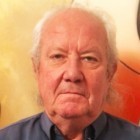Conference Agenda OEB 2020
WSH107
Date Monday, Nov 30 Time – Room:
Getting Hands-on with Student-activating Teaching

Soeren Vrist Christensen
Lector, Marselisborg Gymnasium, Denmark
Søren Vrist Christensen is a Danish high school teacher and pedagogical coordinator at Marselisborg Gymnasium, whose teaching is grounded in blended learning theories.
Working as a teaching consultant, he has given countless of presentations to both private-owned and public organizations and firms in recent years about his teaching practices.
In addition, he does lectures and workshops for high school and university teachers on how to easily integrate EdTech, flipped classroom, and cooperative learning in everyday practices. The goal of Søren’s presentations is always to make everything as concrete as possible.
Are you looking to enhance your digital and pedagogical skills in order to take full advantage of EdTech? This workshop will offer you practical hands-on tools and methods for contemporary, student-activating teaching.
You will learn how to structure and plan classes, in which EdTech is combined with cooperative learning and flipped classroom to transform the students from passive recipients to active participants.
We will explore free platforms such as FlipGrid, Tricider, Nearpod, Floop, and Mentimeter, and concrete student engaging exercises with focus on mutual student co-dependency that will bring variation and motivation into your daily teaching practice will likewise be introduced.
The workshop will have a very short theoretical introduction, but the time will mostly be spent on presenting tools and exercises that the participants can easily integrate in their own classes. Everything will be thoroughly explained as well as there will be specific examples on sequences, modules, and courses, where the exercises and tools can be used.
Expected Outcomes
This Pre-conference workshop does not require you to prepare anything in advance. In it, you will learn how to take on the teaching role that fits our digital age and how:
- To use specific EdTech-tools that make your students active rather than passive participants
- The combination of flipped classroom and cooperative learning can motivate students
- Computational thinking and MOOCs can be incorporated into traditional face-to-face classes
Who Will Benefit Most from Taking Part?
Teachers and educators from high schools and universities
Level
Beginner
PLEASE NOTE: As seats are limited to encourage interaction, you will need to pre-register for this workshop on the conference registration form.
Love Letters and Pen Pals: Creating Online Community through Correspondence
Workshops - WSH233
WSH233
Date Tuesday, Dec 1 Time – Room:
Love Letters and Pen Pals: Creating Online Community through Correspondence

Sean Michael Morris
director, Director of Digital Pedagogy Lab, University of Colorado Denver
I am a digital teacher and pedagogue, with experience especially in instructional design, networked learning, digital composition and publishing, collaboration, and editing. I've been working in digital teaching and learning for 16 years. My work in the field of Critical Digital Pedagogy and Critical Instructional Design is founded in the philosophy of Paulo Freire, and finds contemporary analogues in the work of Howard Rheingold, Audrey Watters, Henry Giroux, bell hooks, and Jesse Stommel. I am committed to engaging audiences in critical inspection of digital technologies, and to turning a social justice lens upon education.
I am currently Senior Instructor of Learning, Design, and Technology in the School of Education and Human Development at the University of Colorado at Denver. I am also the Director of Digital Pedagogy Lab, an experiential, exploratory professional development gathering for a global digital pedagogy community; and I am the former director and managing editor for Hybrid Pedagogy, a digital journal of learning, teaching, and technology. I am the co-author of An Urgency of Teachers: the Work of Critical Digital Pedagogy, and a contributor to Disrupting Digital Humanities, Digital Pedagogy in the Humanities, MOOCs and their Afterlives: Experiments in Scale and Access in Higher Education, Applied Pedagogies: Strategies for Online Writing Instruction, and Critical Examinations of Distance Education Transformation Across Disciplines.
I have been working in digital learning environments since 1999, first as an instructional designer, and later as an adjunct instructor and English program chair. I've consulted with institutions and corporations including the University of Wisconsin-Madison, Marylhurst University, the Community College of Denver, Udacity, Instructure, the City University of New York, HASTAC, the University of Delaware, the University of Dayton, the American University in Cairo, Iliff School of Theology, Warwick University, Open University, and the University of Mary Washington, among others. I received my M.A. in English from the University of Colorado at Boulder.
Links
Over the past two decades working with instructors at every level of education, the plainest objection to online learning has been that it is impossible to preserve classroom pedagogy—much less intimacy and community—when separated from students by distance, with only a screen to connect teachers with their classes. While "research-based" methods of teaching online, and the instructional design that unwinds from them, offer a lot of guarantees on the matters of student success, quality assurance, standardization, and replicable results, none go so far as to provide not just a sense of community, but community real and palpable.
In this hybrid workshop, we will explore synchronous and asynchronous approaches to creating meaningful communities in online learning environments. We will take as our example the tradition of letter writing, and we will experiment with a few forms during our time together, and also extrapolate solutions appropriate to each of our own unique circumstances.
Participants in this workshop will be asked to complete a few readings prior to the workshop. Those readings are listed below. While not strictly required, these readings will provide a backdrop and important context in order to fully participate in the synchronous workshop on 1 December.
Agenda
One week before
Recommended readings
Day of workshop
16:30-16:45: Welcome and Introductions
16:45-17:30: Presentation and Discussion: community in online learning
17:30-18:00: Writing exercises
18:00-18:20: Collaboration and invention
18:20-18:30: Wrap-up
Recommended Readings
- Maha Bali and Bard Meier, “An Affinity for Asynchronous Learning” (https://hybridpedagogy.org/affinity-asynchronous-learning/)
- Sean Michael Morris, “Fostering Care and Community at a Distance” (https://www.seanmichaelmorris.com/fostering-care-and-community-at-a-distance/)
- Sean Michael Morris, “Love Letters and Pen Pals: Community through Correspondence” (https://www.seanmichaelmorris.com/love-letters-and-pen-pals-community-through-correspondence/)
- Sean Michael Morris, “Times which Require Greater Care: Ethos in Online Learning” (https://www.seanmichaelmorris.com/times-which-require-greater-care-ethos-and-practice-in-online-learning/)
- Kris Shaffer, “An Open Letter to My Students” (https://hybridpedagogy.org/open-letter-students/)
- Jesse Stommel, “How to Build an Online Learning Community: 6 Theses” (https://www.jessestommel.com/how-to-build-an-online-learning-community-6-theses/)
Expected Outcomes
Participants in this workshop can expect to engage in collaboration and lively conversation about inventive ways to create meaningful communities in online learning environments. In light of our current situation under the pandemic, the workshop will expose participants to a hybrid learning experience blending both asynchronous and synchronous components. Participants must come prepared to write on a laptop, tablet, or with a pen and paper.
Participants will:
- Learn the basic tenets of critical instructional design, an outgrowth of critical digital pedagogy;
- Discover narrative approaches to teaching and community-building;
- Collaborate on and workshop approaches to creating meaningful communities in online environments;
- Leave the session with 2-3 methods which they can apply to their own teaching or design.
Who Will Benefit Most from Taking Part
Educational technologists, learning and instructional designers, faculty who teach online.
PLEASE NOTE: As seats are limited to encourage interaction, you will need to pre-register for this workshop on the conference registration form.
Speexx Exchange 2020: The New Digital Normal - The Acceleration of Digital Transformation in HR and L&D
Workshops - WSH301
WSH301
Date Wednesday, Dec 2 Time – Room:
Speexx Exchange 2020: The New Digital Normal - The Acceleration of Digital Transformation in HR and L&D

Laura Overton
Managing Director, Author, Facilitator, UK
Laura Overton is an experienced international speaker, author and facilitator with a passion for exploring, challenging and sharing.
Founder of Towards Maturity- the expert learning analysts, Laura's focus has always been on bringing a community together to investigate how learning innovation builds business impact, communicating the findings and facilitating change in the industry.
Tracking the L&D learning innovation journey since 2004, she has authored/ co-authored of over 40 major research reports and, as a regular contributor to industry publications she has written over 300 articles.
As an industry change maker, Laura regularly share good practice findings as a keynote presenter at conferences around the globe and through masterclasses, webinars and seminars. She serves on several advisory boards including the CIPD Professional Map and Learning boards and the OEB Global Council.
Laura was the first female recipient of the Learning and Performance Institute’s Colin Corder Award for outstanding achievement and was also the first recipient of the Learning Technology award for outstanding achievement. In 2018, she was voted the Number 1 mover and shaker in the global e-learning listing and in the top 10 EdTech UK influencers.
Links

Jo Cook
Live online learning specialist, Lightbulb Moment, UK
Jo Cook is Deputy Editor at www.TrainingJournal.com magazine and website, and focuses her time on ground-breaking discussion webinars and speaking at events.
TJ is the only independent, monthly print magazine in the UK for learning and development professionals and has 50 years' experience with the best L&D thought leaders.
Jo works for TJ part time and the rest of the time is Director of her company www.LightbulbMoment.info, which specialises in developing, facilitating and training others to deliver great live online training sessions, virtual classrooms, webinars and blended, digital programmes.
You can contact her through @LightbulbJo or @TrainingJournal
Links
Content
This year marks the tenth edition of the Speexx Exchange at OEB, taking place in Berlin on December 2.
Join 300+ top industry experts and thought leaders from more than 20 countries around the world to discuss the “new normal” and the acceleration of digital transformation in HR and L&D.
Since the beginning of the pandemic, it’s felt like someone pressed the fast-forward button on digital transformation: Overnight, it seemed, once global lock-downs were put in place, organisations had to prepare for – and employees had to get accustomed to – everyone working and learning from home. This year’s Speexx Exchange conference is the perfect place at which to explore the new normal and today’s rapidly changing talent management practices.
Our host will once again be international learning expert, author and Partner at Industry Insights Laura Overton (previously, Founder and CEO of Towards Maturity). In addition to a lineup of speakers presenting their organizations’ global digital transformation projects, the program features (safe, digitally-assisted) networking, the latest industry research, and opportunities to exchange best practices and lessons learned with regard to the new normal, digital transformation and corporate learning.
Confirmed speakers to-date represent a variety of nationalities and companies - spanning healthcare, professional social networks, automotive/manufacturing and more and will include:
- Area9, Andreas Kambach, Solutions Architect
- GP Strategies, Tim Burmeister, Learning Transformation Manager
- LinkedIn Learning, speaker TBC
- Novartis, Miriam Neelen, Global Head of Learning Design & Learning Sciences
- Transforming Talent, Elizabeth Lembke, Chief Talent Navigator
- Winkelmann, Sarah Makowski, Senior Manager, Talent Management
Speexx Exchange will be compliant with all safety regulations and proper social distancing measures reinforced. Register now as live seats are limited: https://www.speexx.com/exchange-conference/.
Expected Outcomes
- Best practices, applicable use cases, lessons learned to apply to working environments
- Thoughts/ideas on how to best roll out learning programs, including microlearning/blended learning/personalized programs
- Great insights into how does AI benefits the L&D/HR managers directors – beyond helping learners, how they can use innovative tech (AI, ML, VR) reach overall business objectives with the budget an organization has, giving the best ROI on training/L&D budgets
Who Will Benefit Most from Taking Part?
Experts, thought leaders and decision-makers from the global HR and L&D community.
Level
Anyone: experts are welcome and beginners as well
PLEASE NOTE: You will need to pre-register for the Speexx Exchange at OEB on the conference registration form.
WSH403
Date Thursday, Dec 3 Time – Room:
Be Your Own Phoenix: Rapid Co-design

Gilly Salmon
Professor & Principal consultant, Education Alchemists Ltd, UK
Professor Gilly Salmon, PhD, PFHEA, NTF. is CEO & Principal Consultant. She has 30 years’ experience at senior levels, in universities in the UK and Australia. She has initiated, strategized, implemented & completed significant institutional change. Her experience & background includes the UK Open University as well as Associate Dean (Online) & Pro Vice-Chancellor roles in research-intensive and in vocational institutions.
She recently spent two years as academic director at an Online Programme Management company. Gilly Salmon is now an Adjunct Professor at Swinburne University of Technology in Melbourne, Australia, & Visiting Professor at Edge Hill University, close to Liverpool, UK.
See her web site www.gillysalmon.com
Links
Could you design and prototype high-quality fully remote courses in one day? Yes, if-
- you get the right people there,
- know great well researched learning frameworks
- acquire a structured design methodology
The ‘Phoenix’ workshop based on the Carpe Diem methodology will enable you to acquire the core concepts of the method and practice with others.
Agenda
10:45 Arrivals
11:00 Start of workshop, Form groups, Create storyboards
12.30 Break
13:00 E-tivities prototyping
15:30 Break
15:45 Review & presentations
17:15 End of workshop
Expected Outcomes
- Knowledge of a well-rehearsed methodology for engaging others to work together to design an online course
- Understanding of the deployment of researched frameworks for students’ success
- Acquisition and practice of visual and enjoyable techniques for thinking about future learning
Who Will Benefit Most from Taking Part?
- Academics and faculty responsible for transitioning their courses to online
- Learning designers and developers responsible for supporting transition to online
- Academic developers exploring how to support others to transition
- Leaders looking to transformation of their department and their students learning
Level
Anyone with knowledge of education in their discipline or profession.
PLEASE NOTE: As seats are limited to encourage interaction, you will need to pre-register for this workshop on the conference registration form.
Prior to the workshop, you will receive an information message with practical information in order to prepare for the workshop (preparation-work is around one hour to practice with Miro and to watch 3 short videos about the learning design method).
Practical Teaching in Virtual Reality Classrooms - Morning Workshop
Workshops - WSH504
WSH504
Date Friday, Dec 4 Time – Room:
Practical Teaching in Virtual Reality Classrooms - Morning Workshop

Willi Bernhard
Professor, Swiss Distance University of Applied Sciences, Switzerland
Willi Bernhard is a professor at the Swiss Distance University of Applied Sciences located in Brig.
He works as an engineer, lecturer, researcher, consultant and author in the fields of Digital-Collaboration, Computer Simulation, Serious Games, Digital Learning and Creativity Training.
He received several innovation awards in the field of simulation technology, is a member of the Board of Swiss Engineering STV „Section Basel“ and head of the Special Interest Group "Digital Collaboration" at the Swiss E-Learning Community of Higher Education Institutions.
Links

Bodo Möslein-Tröppner
Professor, Duale Hochschule Baden-Württemberg, Ravensburg, Germany
Prof. Dr. Möslein-Tröppner has many years of experience in industry and trade. His main focus in research and teaching is in the areas of supply chain management, process management and market research as well as new learning methods. He is Professor at DHBW Ravensburg.
Links
Would you like to start using avatar-based meetings in virtual reality environments for teaching and learning?
Some advantages of teaching, learning and collaboration in VR rooms are that all students are noticeably in the same room, can see and hear each other immediately and even have an impressive experience in 3D and 360 degrees (though participation without special VR equipment and with a variety of devices, such as desktops, laptops, tablets or smartphones can participate too).
VR environments such as AltspaceVR and Mozilla Hubs are available free of charge and offer ready-made spaces in which different learning scenarios can become a reality. In this pre-conference workshop you will be able to experience and experiment with interaction and teaching scenarios in VR spaces of Mozilla Hubs.
Join us to learn how to put a specific VR classroom into operation and how to invite students to your learning environment. We will use a variety of free VR spaces and you will be able to participate with your own avatar with or without VR equipment.
Participants are invited to use their laptop or, if available, their VR device.
Mozilla Hubs is browser-based, therefore no installation is needed. It runs on Windows, OSX, Android, IOS and all VR-Devices which can start VR-Applikations in a browser.
Agenda
Introduction into VR-Classroom teaching (15 Min)
Introduction into VR-Spaces of Mozilla Hubs (15 Min)
Browser-based VR classroom-meeting with Mozilla hubs (60 Min)
• First experiences and interaction possibilities in different VR rooms
• Practical Teaching scenarios
Further possibilities, discussion and exchange of your own ideas for teaching (30 Min)
Please note: To participate in this free workshop, you will need to pre-register via the conference registration form. The workshop is conducted twice, starting at 10:30 and at 13:30.
Practical Teaching in Virtual Reality Classrooms - Afternoon Workshop
Workshops - WSH513
WSH513
Date Friday, Dec 4 Time – Room:
Practical Teaching in Virtual Reality Classrooms - Afternoon Workshop

Willi Bernhard
Professor, Swiss Distance University of Applied Sciences, Switzerland
Willi Bernhard is a professor at the Swiss Distance University of Applied Sciences located in Brig.
He works as an engineer, lecturer, researcher, consultant and author in the fields of Digital-Collaboration, Computer Simulation, Serious Games, Digital Learning and Creativity Training.
He received several innovation awards in the field of simulation technology, is a member of the Board of Swiss Engineering STV „Section Basel“ and head of the Special Interest Group "Digital Collaboration" at the Swiss E-Learning Community of Higher Education Institutions.
Links

Bodo Möslein-Tröppner
Professor, Duale Hochschule Baden-Württemberg, Ravensburg, Germany
Prof. Dr. Möslein-Tröppner has many years of experience in industry and trade. His main focus in research and teaching is in the areas of supply chain management, process management and market research as well as new learning methods. He is Professor at DHBW Ravensburg.
Links
Would you like to start using avatar-based meetings in virtual reality environments for teaching and learning?
Some advantages of teaching, learning and collaboration in VR rooms are that all students are noticeably in the same room, can see and hear each other immediately and even have an impressive experience in 3D and 360 degrees (though participation without special VR equipment and with a variety of devices, such as desktops, laptops, tablets or smartphones can participate too).
VR environments such as AltspaceVR and Mozilla Hubs are available free of charge and offer ready-made spaces in which different learning scenarios can become a reality. In this pre-conference workshop you will be able to experience and experiment with interaction and teaching scenarios in VR spaces of Mozilla Hubs.
Join us to learn how to put a specific VR classroom into operation and how to invite students to your learning environment. We will use a variety of free VR spaces and you will be able to participate with your own avatar with or without VR equipment.
Participants are invited to use their laptop or, if available, their VR device.
Mozilla Hubs is browser-based, therefore no installation is needed. It runs on Windows, OSX, Android, IOS and all VR-Devices which can start VR-Applikations in a browser.
Agenda
Introduction into VR-Classroom teaching (15 Min)
Introduction into VR-Spaces of Mozilla Hubs (15 Min)
Browser-based VR classroom-meeting with Mozilla hubs (60 Min)
• First experiences and interaction possibilities in different VR rooms
• Practical Teaching scenarios
Further possibilities, discussion and exchange of your own ideas for teaching (30 Min)
Please note: To participate in this free workshop, you will need to pre-register via the conference registration form. The workshop is conducted twice, starting at 10:30 and at 13:30.



